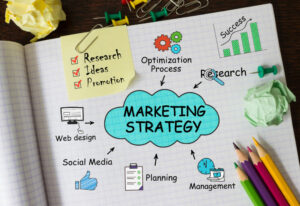If there has been one significant change to the way in which people and businesses interact over the past decade, it’s technology.
This is especially true for business technology; the social media, the websites, platforms and applications enabling users to create and share content and participate in social networking. This impact has brought about such disruptive change that you might well have missed the full of scope of it.
If Facebook were a country, it would be the third-largest one on the planet today, smaller only than China and India in terms of population – and not smaller by much. It carries more traffic than Google in the United States and almost 50 per cent of the mobile internet traffic in the UK is Facebook. A sizeable 34 per cent of bloggers review products and more than 24 hours of video is uploaded to YouTube every minute of every day, much of it talking about brands and products.
These are not just interesting facts.
As much as technology has the ability to modernise in progressive steps, it also has the capability to overturn businesses or even industries with dizzying speed. For companies wishing to grow, this is both a warning and an opportunity.
The ‘always on’ global consumer
The ‘always on’ global consumer is exactly that: always on. They are the connected customers. This should dramatically change the way businesses consider its product or service offering, how it designs and executes its marketing strategy, and the channels it chooses to use. If you’re not playing in the 24/7 arena and one of your competitors are, then you’ve just lost customers without even trying.

Connecting the physical and digital worlds
Technology gives way to an omnichannel approach which provides the platform to offer a continuous customer experience across your brand and across multiple formats and devices. Customers are going from screen to store and store to screen as part of their buying behaviour.
Savvy businesses are embracing this insight and using technology and data points to communicate one-to-one with their target customer fostering the all-important emotional connection.
Levelling the playing field
Technology has levelled the playing field. Small businesses can have a global customer base through the ‘www’ shop window. However, while this has opened up new market opportunities and new targets segments, you still need to deliver on your brand promise. Distribution, customer service and cross border regulations (if applicable) need to be up to scratch.
If not, you’ll spend your time and resources repairing your brand reputation instead of building it.
Defining your value proposition
One obvious example where business technology has impacted the value proposition is in book retail, which Amazon entered into in 1994. In 2015, just 21 years later, Amazon was the largest retailer in the world by market capitalisation, and along the way it had a huge impact on the traditional bricks and mortar retailers.
Technology used to be an enabler of your value proposition. Amazon and similar organisations have demonstrated that technology is your platform to deliver your value proposition.
Access and speed to market
An emerging trend and one which is offering a challenge to every business with big investment in people headcount and infrastructure is the emergence of companies that make money as a middleman, while incurring no or limited costs.

Think of Uber as a current example; it owns no cars and hires no drivers, but makes money by linking drivers with customers through a simple app. Airbnb follows the same model; it owns no properties but charges a fee to link millions of accommodation seekers with property owners. In the UK, Notonthehighstreet has built a business by providing an e-commerce hub to small product manufacturers who otherwise wouldn’t have access to large marketing and retail opportunities.
A business technology driven business model is a win-win. If you’re the entrepreneur with the next Uber or Airbnb idea or the business owner with a small product wanting to market online, then you can acquire a large customer base, on a different continent by building or accessing nothing more than an interface with the aim to maximise and retain customers by managing the quality and service provided.
Royston Guest is CEO of Pti Worldwide and author of business growth book, Built to Grow.




